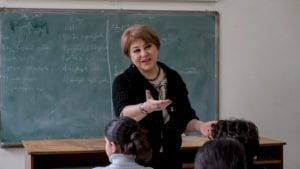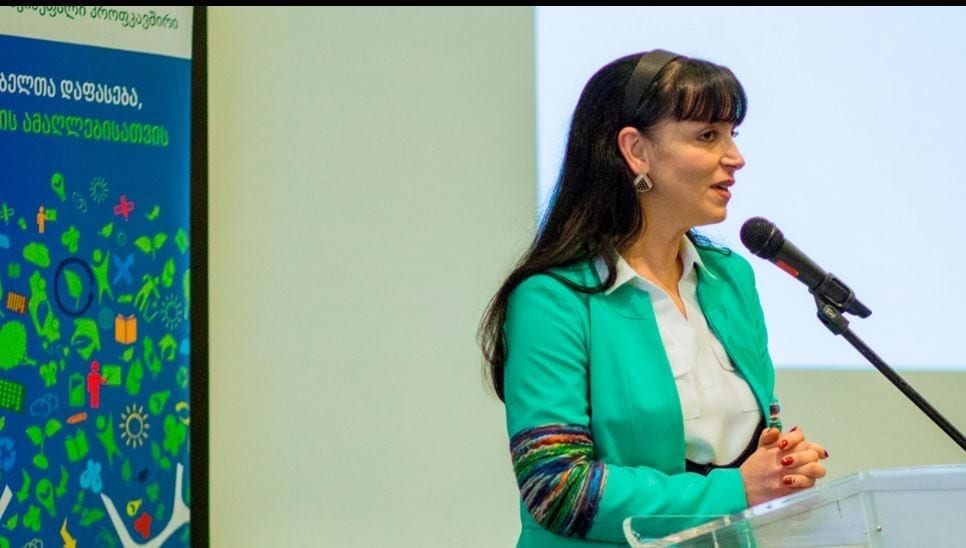
Tamar Barisashvili, Georgian language teacher and ESFTUG member, in the classroom. Credit: Lela Mepharishvili
In a precedent-setting move, the union representing teachers in Georgia signed a pact with the education ministry last month, signaling the new government’s willingness to partner with teachers—although unions in other sectors, including the railways and postal sector remain under attack. Unions in Georgia have struggled for their right to organize for more than a decade now, including under former president Mikheil Saakashvili.
“The decision of the Minister of Education and Science to sign the sectoral agreement shows clearly how democratic processes are developing and the democratic management in the education sector is being established,” said the president of the ESFTUG education union, Maia Kobakhidze, representing teachers.
Committing the ministry to work in partnership with the ESFTUG, the agreement sets a path for cooperation on laws and regulations affecting teachers, collective agreements with the union regarding teachers’ compensation, work conditions and benefits, as well as any new education initiatives.
The agreement reverses more than a decade of an anti-union campaign by the former administration, as a result of which the country’s labor federation, GTUC, lost more than 100,000 members, and the teachers’ union came close to collapse.
In recognition of the significance of the agreement, the signing ceremony in Tblisi on March 16, 2017, by ESFTUG’s Kobakhidze and Education Minister Aleksandre Jejelava was widely covered by media, and gathered together 300 guests. Attendees included representatives of the teachers, ministry officials, members of the diplomatic corps, including the U.S. Embassy, the International Labor Organization (ILO), the global union federation Education International (EI) and several nongovernmental organizations.
Jejelava thanked ESFTUG during his speech for giving his ministry the opportunity to work with the union to create better conditions for teachers and defend their rights, so they may better serve Georgia’s children.
The Solidarity Center has partnered with Georgian trade unions for almost two decades, providing programs that support legislative research and training in defense of worker and union rights, promote activities designed to increase union integration and coordination, help unions represent their members and reach out to unorganized workers, and educate workers about principles of democratic trade unionism.

